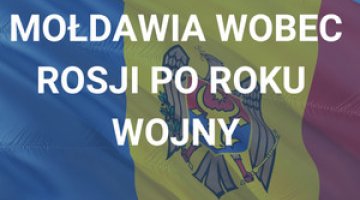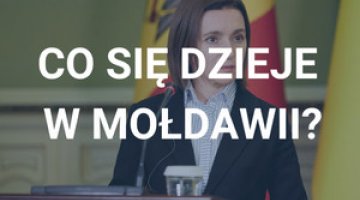Analyses
Elections in Moldova: no decisive breakthrough
The parliamentary elections in Moldova have not led to the overcoming of the political deadlock there. There are only extremely meagre chances for a broad political compromise which is required to elect a president and avoid early parliamentary elections for the third consecutive time.
The early parliamentary elections in Moldova on 28 November have not led to a breakthrough in the political-constitutional impasse which the country has found itself in since April 2009.
It remains the case that none of the reasonably likely coalitions which could appoint a government will command the qualified majority of three-fifths of the votes needed to elect a president and avoid a third round of early elections. It will also be extremely difficult to restore the coalition of pro-European parties which, under the banner of the Alliance for European integration (AIE), ruled Moldova from September 2009. The growing tensions between them may cause the Democratic Party to ultimately create a government with the Communist party (PCRM).
The election results
The elections showed once again that the Moldovan electorate is divided almost evenly into supporters of a pro-Russian option (the Communists) and a pro-European option (the AIE’s parties). In comparison with the elections of last July, the PKRM has lost 5 percentage points, but remains the largest party, supported by 39% of voters. Support for the AIE remained at almost the same level (an increase of less than 1% to 52%). Meanwhile, important shifts have occurred within the pro-European camp; the smallest coalition party, the Alliance Moldova Noastra (AMN) has failed to enter parliament, losing its electorate to the Liberal Democratic Party (PLDM) of Prime Minister Vladimir Filat. This party has almost doubled its share, winning 29% of the votes. The Democratic Party (PD) achieved a similar result to a year ago (13%), and the right-wing, openly pro-Romanian Liberal Party (PL) lost a third of its electorate, winning around 10% of the votes. These results mean that the PCRM will have 42 deputies in Parliament, the PLDM 32, the PD 15, and the PL 12.
Coalition bargaining, and the chances for a historic compromise
Although the layout of forces in parliament and the political context remain essentially unchanged in comparison with autumn 2009, when the Parliament chosen in July was unable to choose a President (which required 61 votes in the 101-seat chamber), there are a number of new factors that make it uncertain whether the pro-European parties can re-establish a coalition government, or whether there will be a change in alliances, and the establishment of a government by the Communists and the PD.
A new element in the situation is the increase in tensions between the pro-European parties. This is the consequence of PLDM leader Prime Minister Vladimir Filat’s ruthless (and effective) use during the election campaign of administrative pressures to deprive his coalition partners of their electorate, as well as his own growing aspirations to ensure his party a dominant position in the new government. This may induce the PD, which amongst the Alliance’s parties is ideologically closest to the Communists, to change their allegiance and form a coalition with the PCRM. Such a solution is also made more likely by the internal situation in the PD, which has changed in comparison to autumn 2009. The role of its main financial sponsor, the millionaire Vladimir Plahotniuc, has become more significant. The PD’s parliamentary party will not contain a single representative of its liberal, uncompromisingly anti-communist wing. Instead it will include Plahotniuc himself and five of his close associates. Plahotniuc is ideologically closer to the PCRM, under whose rule his business flourished, than to the liberal parties. Moreover, it will be easier for the Communists than for the liberal democrats to give the Democratic Party the premiership, as the PCRM’s leader Vladimir Voronin sees himself as the speaker of parliament, while Filat wants to keep the post of prime minister for himself. On the other hand, there are still concerns in the PD’s leadership that if they enter a coalition with the Communists as a minority partner, they may lose a large part of their electorate, which in turn would lead to the marginalisation of the party.
A new factor which is opening up an opportunity to break through the political-constitutional deadlock is the increasing weariness in Moldova with the continual political instability. Among the political elites, the understanding is dawning that a compromise must be reached between the major political forces in order to avoid yet more early elections. If the AIE coalition is repeated, the Communist Party may this time be ready to support a compromise candidate for president. Voronin’s hopes of an electoral comeback have already been dashed twice, and in connection with the long-term trend of the gradual crumbling of his party’s electorate (they won 50% in 2001, 49% in April 2009, 45% in July 2009, and only 39% now), he may conclude that it is better to reach a compromise than risk further elections. Meanwhile a PCRM/PD coalition could add the PLDM to its ranks in order to gain the necessary votes to elect a president, especially if Moldova’s foreign partners put pressure on them to form a grand coalition. However, forecasts on Moldovan politics based on purely rational calculations tend not to come true. The fundamental contradictions between the Communists and the pro-European parties have not disappeared; the personal animosities between the major figures of the political scene have only deepened. There is therefore only a small chance that a compromise will be reached between the major political forces on electing a president.
Conclusions
Moldova can expect the negotiations between the four parties which entered parliament to last a couple of months at least. At first, the three pro-European parties (the PLDM, PD and PL) will make attempts to create a majority coalition, which would allow them to select a speaker of parliament and form the government. The coalition will next try to convince the PCRM to find a neutral candidate for the presidency. It cannot be ruled out that the government will be formed by a PD/PCRM coalition. In both cases, however, the election of a president is unlikely, which will mean further early elections.




